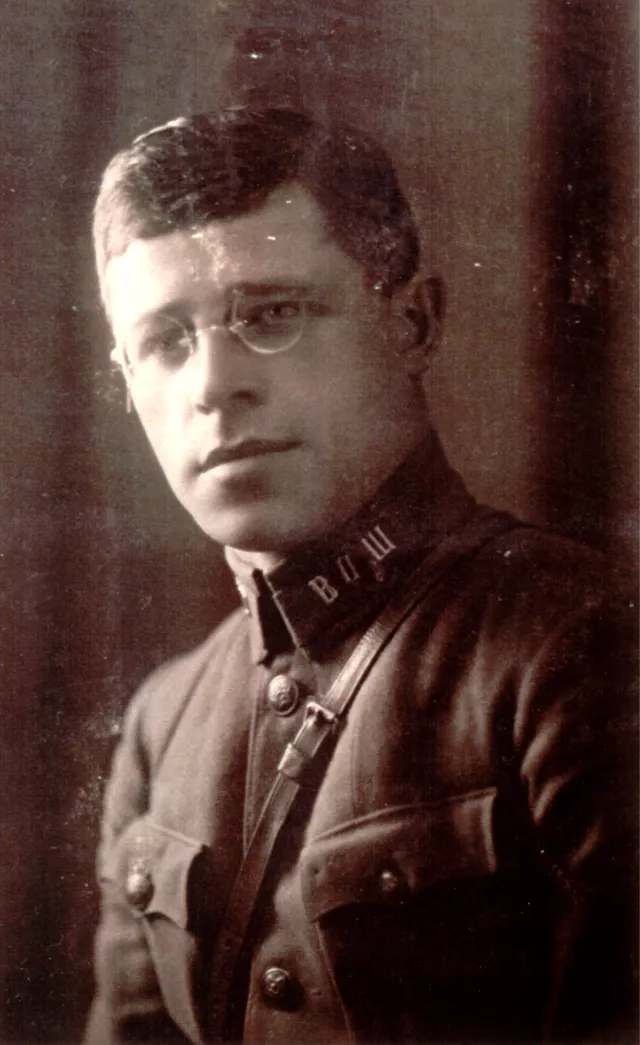My father Pyotr Chazov wearing a uniform of cadets of the Higher Party School, photographed in Krivoy Rog in early 1930s.
My father was born in Chusovaya, a distant area near Nizhniy Tagil in the Ural [Russia, 3000 km from Kiev] in 1900. His father Michael Chazov, my grandfather, was a trackwalker at the station and grandmother Anastasia was an attendant in the railroad hospital. My father didn't have any brothers or sisters. When my father was about 6 years old grandfather Michael died from anthrax and when he was 11 his mother died of tuberculosis. By that time my father had finished the 5th grade in the secondary school. He didn't continue his studies. My father lived with his aunts taking turns with one aunt in Briyansk region and another aunt in Perm region. He followed into his father's steps and went to work in railroad depots. In 1917 my father joined the Red Army along with other workers. Basically, he joined it to get better food. They were also provided clothes and accommodation. My father struggled against White units in Siberia. His fellow comrade was a hero of the Civil War and a future Marshall of the Soviet Union, Golikov. Life threw them together several times in the future. My father served in Ukraine and took part in battles in the Crimea and was awarded an Order of Red Star. There is a photograph of my father and a group of Red Army soldiers awarded orders of Red Star. An outstanding red commander Blyukher conducted the award ceremony. During the Civil War my father became a communist. After the Civil War was over my father passed his exams to receive a certificate of a low secondary school and then finished a Higher Party School. He became a political officer in the Red Army. He was sent to serve in Odessa, Dnepropetrovsk and Krivoy Rog. By the time my parents met he was in the rank off lieutenant colonel. When he was in Krivoy Rog he was hit by a car when riding a motorcycle. He was taken to hospital where he had to stay a long time. My father met my mother in the hospital in 1931 and they fell in love with each other.
Both of them came from families of workers and they were a product of the Soviet epoch: they were led by their dreams about socialism and communism, construction of plants and mines and a new life with no exploitation. That was what other Soviet people were driven by. My father fell in love at first sight and my mother returned his love. They met several times after my father was released from hospital and then he came to my mother's parents with a bunch of flowers to ask their consent. Although he wasn't a Jew my grandmother and grandfather gave their consent to their marriage without hesitation. My mother's parents had given up all prejudices associated with Jewish religious life, including mixed marriages. Also, they liked my father as a person. Few weeks later my father and mother had a civil ceremony in the registry office. They didn't have a big wedding party; it wasn't customary at that time. grandfather and grandmother arranged a dinner where my father invited his colleagues and mother invited her friends, about 8 guests in total.
My father was political deputy of commanding officer of the military unit. He was a colonel. Officers that came from the lowest levels of society, workers' or peasants' families, were inclined to sybaritic way of life: they dressed up, smoked pipes and spent a lot of time sitting at a card-table playing. My father's friends called my father Pierre in a French manner for his snobbery and his predilection to nice clothing and good eau-de-cologne.















